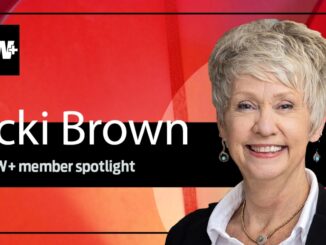
Average mortgage interest rates increased significantly during the week ended September 23. As a result, the Mortgage Bankers Association (MBA) said the volume of mortgage applications gave back most of its prior week gains when it had increased for the first time in six weeks.
The Market Composite Index, a measure of mortgage loan application volume, decreased 3.7 percent on a seasonally adjusted basis from one week earlier and was 4 percent lower on an unadjusted basis.
The Refinance Index dropped back by 11 percent week-over-week and was 84 percent lower than the same week one year ago. The refinance share of mortgage activity decreased to 30.2 percent from 32.5 percent the previous week.
The seasonally adjusted Purchase Index decreased 0.4 percent from one week earlier and was 1 percent lower before adjustment. Applications were down 29 percent compared to the same week in 2021.
“Applications for both purchase and refinances declined last week as mortgage rates continued to increase to multi-year highs following more aggressive policy measures from the Federal Reserve to bring down inflation,” Joel Kan said. “Additionally, ongoing uncertainty about the impact of the Fed’s reduction of its MBS and Treasury holdings is adding to the volatility in mortgage rates. The 30-year fixed rate was 6.52 percent, its highest level since mid-2008. After a brief pause in July, mortgage rates have increased more than a percentage point over the past six weeks.”
Kan, MBA’s Associate Vice President of Economic and Industry Forecasting, noted, “With rates now more than double what they were a year ago, the pace of refinancing is running at a 22-year low and last week was more than 80 percent below last year’s level. Similarly, purchase activity was 29 percent lower than a year ago, with higher rates and economic uncertainty weighing on buyers’ decisions.
“With the recent jump in rates, the ARM share reached 10 percent of applications and almost 20 percent of dollar volume. ARM loans remain a viable option for qualified borrowers in this rising rate environment,” Kan said.
There were other highlights from MBA’s Weekly Mortgage Applications Survey.
The FHA share of total applications decreased to 12.5 percent from 13.3 percent and the VA share inched down to 10.7 percent from 10.9 percent. USDA mortgages represented 0.6 percent of applications, unchanged from the prior week.
The average size of loans used for home purchases declined to $411,700 from $413,200 a week earlier, but the average size of all loans moved to $369,400 from $365.800.
The 5.62 percent average rate for the 30-year fixed-rate mortgage (FRM) was up 27 basis points from the prior week. Points increased to 1.15 from 0.71.
The average contract interest rate for 30-year FRM with jumbo loan balances increased to 6.01 percent from 5.79 percent and points increased to 0.7 from 0.46.
Thirty-year FHA-backed FRM had an average rate of 6.17 percent with 1.31 point. The prior week the rate was 5.85 percent with 1.15 point.
There was a 30-basis point jump in the rate for 15-year FRM to 5.70 percent. Points rose to 1.33 from 1.06.
The 5/1 adjustable-rate mortgage (ARM) rate increased from an average of 5.14 percent the previous week to 5.30 percent. Points grew to 1.28 from 0.99.
Applications for ARMs claimed 10.4 percent of the total volume, up from 9.1 percent a week earlier.



